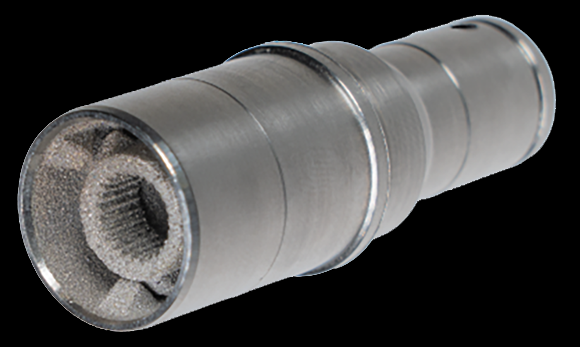Liebherr-Aerospace, based in Toulouse, France, has reached a significant milestone with the European Union Aviation Safety Agency (EASA) approval of a metal additively manufactured flex shaft. This complex titanium component will now enter serial production for Airbus, marking a pivotal advancement in aerospace manufacturing.
Innovative Design and Manufacturing
Utilizing the design freedom offered by Laser Beam Powder Bed Fusion (PBF-LB) Additive Manufacturing, Liebherr has revolutionized the production process by replacing a seven-part assembly with a single additively manufactured component. This innovation enhances reliability and significantly reduces weight, showcasing the efficiency and potential of additive manufacturing in aerospace applications.
Integration into Airbus A350 High Lift System
The flex shaft is designed for the Airbus A350 high lift system, where it will be integrated into the active differential gearbox of the flap system. It transmits rotary movement to a position sensor, compensating for angular and axial misalignments between the gearbox and the sensor.
Pioneering Additive Manufacturing in Aerospace
Liebherr-Aerospace has a history of pioneering additive manufacturing in the aerospace sector. In early 2019, the company began serial production of an additively manufactured proximity sensor bracket for the A350 nose landing gear. This bracket was the first Airbus system part to be qualified for titanium additive manufacturing.
Advancing Complexity and Integration
The newly approved flex shaft represents a higher degree of complexity compared to previous additively manufactured parts developed by Liebherr. This achievement signifies a crucial step forward in applying additive manufacturing to highly integrated aerospace systems, underscoring Liebherr’s commitment to innovation and excellence in the industry.


